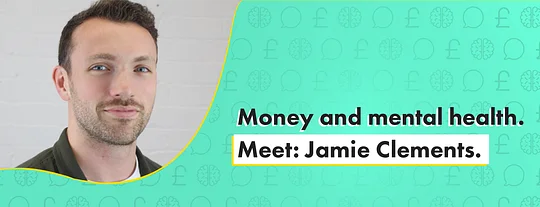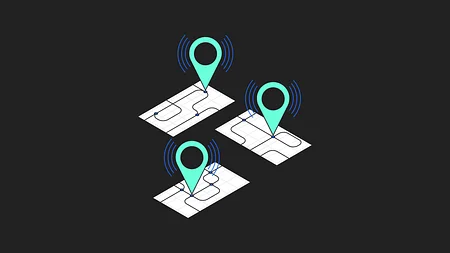Money and mental health. Jamie Clements

Sharing our stories, our challenges, and the things that truly matter to us. Today we talk to Jamie Clements from the 11:FS Pulse team to discuss mental health, opening up and what led him to creating a podcast about these complex issues.
The level of discussion around the topic of mental health has been growing and significant progress has been made to reduce stigma and support those in need. However, there is a lot more that has to be done.
Mental health and wellbeing are complex, nuanced topics. It needs advocates who are open to sharing their own stories and struggles to help others understand these complex issues and destigmatise the topic.
11:FS is fortunate to have a number of people who have done this time and again, whether that’s at our company Townhalls, on our blog, in our podcasts. Jamie Clements, an account executive on the 11:FS Pulse team, is one of them, leading that charge. He recently started to share more of those stories on a new podcast called Man Down.
Hi Jamie, thanks for taking the time to chat. Let’s start with an easy-ish one: we know what you do but what do you tell your relatives when they ask?
I look after our base of fintech and traditional banking clients to make sure they’re happy with the platform. I also look to grow usage of the platform within those companies.
Next one, a stranger asks you to describe 11:FS in a single sentence, what do you say?
When you try to make an existing analogue process or product digital, it tends to suck, truly digital innovation is where the magic happens.
100% stealing that. What do you consider to be the most important thing you’ve learnt since joining 11:FS?
That JTBD is such a foreign concept to so many businesses that claim to be customer centric. Oh and also that embracing your weird should be encouraged.
What happens when you share is that you automatically liberate this fear in others and they can become comfortable sharing themselves
What’s the proudest moment in your career?
Getting the opportunity to appear on Fintech Insider OnAir for a Money and Mental Health special.
A great episode that unpacked a lot of complex topics. You’ve been open about your own mental health journey - could you talk a bit about the notions of getting comfortable with vulnerability, asking for help?
Absolutely, for me a massive learning curve and part of my own progress came from getting comfortable sharing my own struggles. This is much easier said than done, given the stigma that we’re working hard to dismantle, most people have a huge fear of judgement when it comes to sharing their issues openly and authentically.
In reality though, what happens when you share is that you automatically liberate this fear in others and they can become comfortable sharing themselves.
I always talk about vulnerability being rooted in strength rather than weakness, and how contagious it can be once someone does take the step to open up and own their story.
How do we change that conversation? It can be so hard to ask for help, especially when you’re at your lowest.
These conversations are never easy and can be terrifying due to fear of judgement and other factors.
The best way I’ve found is by trying to normalise the conversation as much as possible - in Britain especially we have a taboo around opening up and asking for help and so we have a long way to go to make these concepts and conversations commonplace.
Part of this work comes from holding a mirror up to people, by which I mean allowing them to listen to other people’s stories in the hope they’ll see parts of themselves.
I always talk about vulnerability being rooted in strength rather than weakness
And how have you found being fully remote during lockdown? A lot of us have found it a bit of a struggle when you’re home isn’t really set up for working in.
I’d be lying if I said it hasn’t been a bit of a rollercoaster.
I’m pretty good at being independent and I was very lucky to have a two week holiday and retreat just before lockdown started so I managed okay to begin with. However, I’ve definitely been affected by what’s been going on in the world and have had days where I’ve struggled being sat at my desk all day and certainly miss the social elements of the office.
During lockdown you’ve been running remote meditation and breathwork sessions for 11:FS employees - can you explain how that came about and what you do in those sessions?
I’ve spent the last couple of years learning a lot about mindfulness practices and more specifically breathwork and meditation. I’m in the middle of my breathwork facilitator training at the moment which is very exciting.
In terms of the sessions themselves, we mix a variety of traditional meditation techniques and conscious breathing exercises to help people to understand their breathing, the link between their mind and body and ultimately give people the tools they need to shift between states in these uncertain times.
You’re an MQ Mental Health Ambassador, could you give us the lowdown on the charity and it’s work?
MQ is a fantastic charity focused on mental health research. Mental health, given the scale of it, is severely underfunded when it comes to research.
The team at MQ conduct really vital research so that we can start to tackle this mental health epidemic at source, rather than solely being reactive in our solutions.
You’re also a certified Mental Health first aider. What does that mean?
Most importantly, this does not mean I’m a therapist of any kind.
The MHFA course gives you the tools to identify and support people with any kind of mental health issue they may be experiencing and point them in the direction of the right type of support.
The vast amount of data the banks have can be used to identify potential issues for customers perhaps before they realise it themselves - that’s where the power lies
Your day-to-day at 11:FS is focused on 11:FS Pulse. So are you seeing any interesting approaches to banks helping support more vulnerable customers?
This is a pretty new consideration for a lot of companies but it’s finally starting to come onto their radar. The work that the likes of Toucan & Tully are doing in the fintech space has definitely forced some of the incumbents’ hands, in my opinion, which can only be a good thing.
There are still a number of considerations around how best to support vulnerable customers but the work being done by the Money & Mental Health Policy Institute is providing excellent guidance into what can be done.
Is there more they can do to break the cycle of debt that entraps those in poor mental health? Given the current situation it feels like this is only going to escalate.
It’s just that sadly, a cycle, and it’s difficult to break. There are a combination of things that can be done around financial education to help people to help themselves. But I believe that the vast amount of data the banks have can be used to identify potential issues for customers perhaps before they realise it themselves - that’s where the power lies.
Last one, promise! You recently launched a podcast ‘Man Down - The Anti-Man-Up Movement’. What was the thinking behind that?
Yes! Being around the 11:FS podcast empire definitely helped me believe that this was possible. It takes a lot of inspiration from some of the things I’ve touched on around vulnerability and holding a mirror up to people.
The podcast is a series of interviews with successful and inspiring people, who also share their own mental health journey, to show everyone that vulnerability isn’t incompatible with strength. I’ve recently partnered with Beder, an amazing new charity focused on mental health and suicide prevention and I hope we can help spread the word!
Thank you, Jamie.
If you're interested in more details or resources on mental health and wellbeing, or looking for support if you're struggling, remember you're not alone:
Anxiety UK: providing support to those diagnosed with an anxiety condition.
Bipolar UK: helping people living with manic depression or bipolar disorder.
CALM: the Campaign Against Living Miserably, for men aged 15 to 35.
Mental Health Foundation: providing information and support for anyone with mental health problems or learning disabilities.
Mind: promoting the views and needs of people with mental health problems.
Rethink Mental Illness: offering support and advice for people living with mental illness.
Samaritans: offering confidential support for people experiencing feelings of distress or despair.
SANE: offering emotional support, information and guidance for people affected by mental illness, their families and carers.


